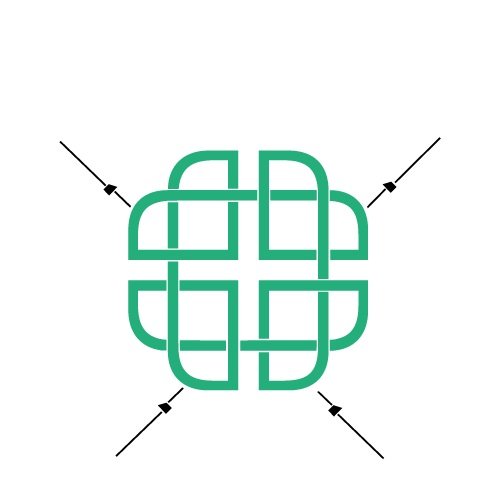Creating the Competitive Self
You as a Competitor
The third installment discussing Mental Preparation for Competition and training deals with the concept of the Performer, or Competitor, Self. This topic is discussed in Dr. James Loehr’s The New Toughness Training For Sports: Mental, Emotional, and Physical Conditioning from One of the World’s premier Sports Psychologists. What I’ll do here is specifically apply these ideas to weightlifting, powerlifting, and throwing.
The Competitor Self is the culmination of your training and reflects your ability to achieve the Ideal Competitive State. When in this state we find it much easier to perform well. Physiological factors contribute to this state, including feelings of confidence, fun, energy and aggressiveness; these feelings draw out physical changes to the brain which are opposite of fear, anxiety, and fatigue (12-13). In short, the better your body is prepared, the easier it is to prepare mentally. And when you’re in a good mental state, it’s easier to perform well. Remember a time in your life when you felt everything was going well, whether it was a job interview, a date, a test, or a competition. Those feelings were awesome and made it easier to win. At last Summer’s American Open Series 2 meet in Valley Forge, between my first and second Clean and Jerks, I felt good. I felt a feeling I hadn’t felt since USAW freestyle Regionals in 1992. I knew I was going to hit whatever I wanted, I felt the physical prep, I felt mentally ready, and those states fed each other and left no room for any doubt.
What’s crazy about feeling this way was that I had 26 lifters to Coach, I was the meet director, and I hadn’t competed in a major meet since 2010. But I turned on a special Competitor Self, someone who is confident, feels good, and knows he can lift (wrestle, throw) well. It was a long distance from my actual self that day but bringing that Self to the platform is essential to winning and performing well. And managing the real person that day- the harried meet director and coach- helped me recognize what I needed to do to become better. “Each and every negative feeling that we experience serves a purpose.” (15) (emphasis in the book). These negative feelings tell us what we need to take care of. If you feel hungry, you need to take care of your food. If you feel out of breath, then conditioning. If you feel like you’re going to fail- then we need to look at the last couple weeks of blogs and take actions to help us understand why we feel like we will fail and how to turn it around. It’s okay to have these negative thoughts, because they tell us specifically what we need to take care of. But a real competitor has to find a way to address those shortcomings and get beyond them. And that, too, is where the competitor self takes over on the platform.
As such, the Competitor is acting. No one cares if you are tired, or sick, your competition certainly doesn’t, and to be honest, your coach just wants you to do well. All of that extra stuff doesn’t matter on the platform. You, as competitor, need to sort this out. Pretend you’re fast and you will be. Whenever you step on that platform, whenever you go through your routine, it CREATES the competent competitor we need to be. Literally two minutes ago I got a message from one of my lifters saying that there was a smell in the gym and that she was tired and my reply was: I don’t care. How is your lifting? Those things aren’t your lifting. And she was able to focus on made her snatch waves. We need to realize that extra stuff is a distraction- and if we get distracted, that’s telling us we need to focus.
There are other situations, too. Fear is one. Being boo’d and yelled at, having people mess with your head. I love these situations. I own them. If they’re booing they know they’re in danger, if someone is focused on messing you up you know they aren’t prepared. Own those actions and own yourself. LOVE IT. Love every moment of the stress.
Finally, we want to practice three things to help us achieve ideal performance. First of all, we want to be disciplined in practicing the thinking and positive imaging skills we talked about the last two weeks. Next, we must back up those thoughts and feelings with physical responses. Stand tall, breathe calmly, be alert in your eyes. And finally, practice the emotional response we want to have practice responding confidently. Practice letting go of the negative thoughts that haunt you.
Next time you train or compete, go out to the platform strong. Walk out like you just made the lift. Lift knowing you will make the lift. Finish the lift knowing you still have a job to do, and stay focused. Practicing these skills every lift in training makes you better on the platform, practicing these skills at local meets makes you better at national meets. Show them who you want to be. Let yourself be good, you deserve this. And finally, everytime you walk out there to lift, every time you walk up to the barbell, when the pressure challenges you, let every action of your being shout THIS IS WHO I AM.
